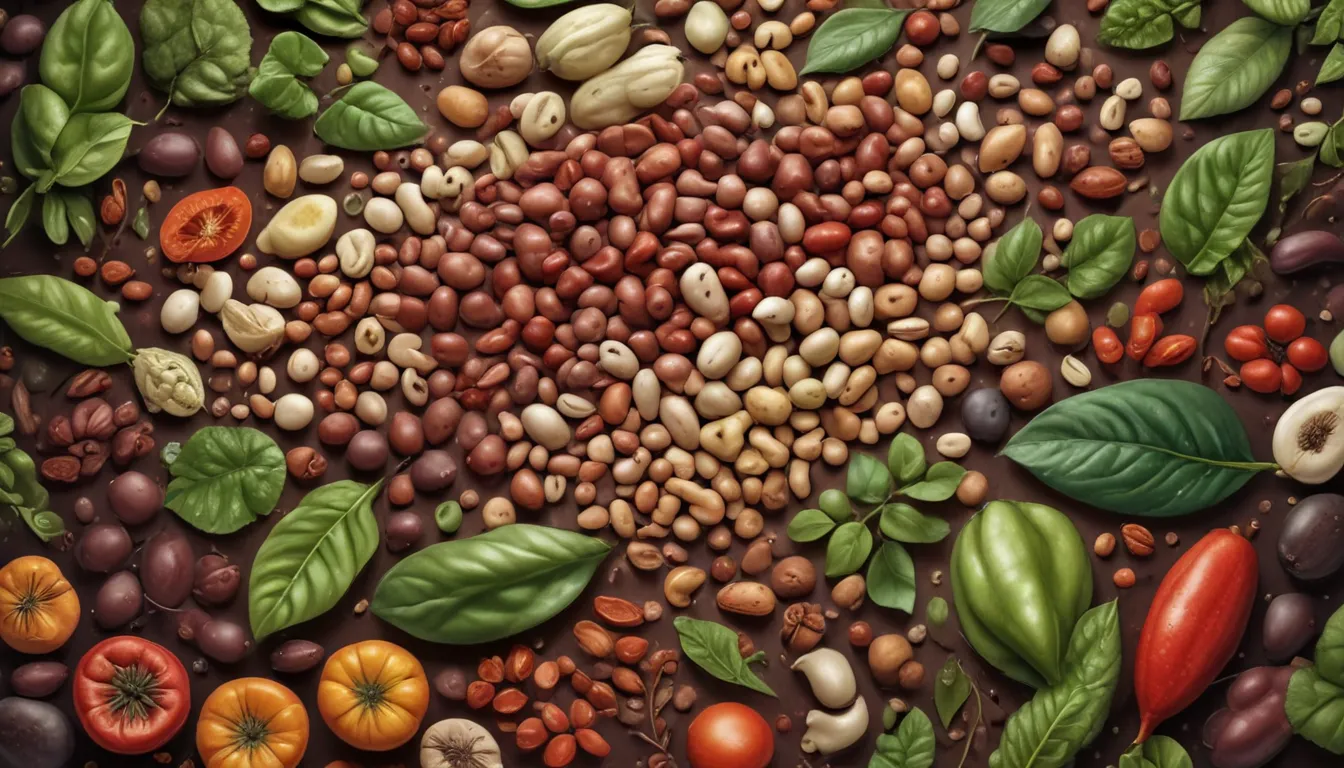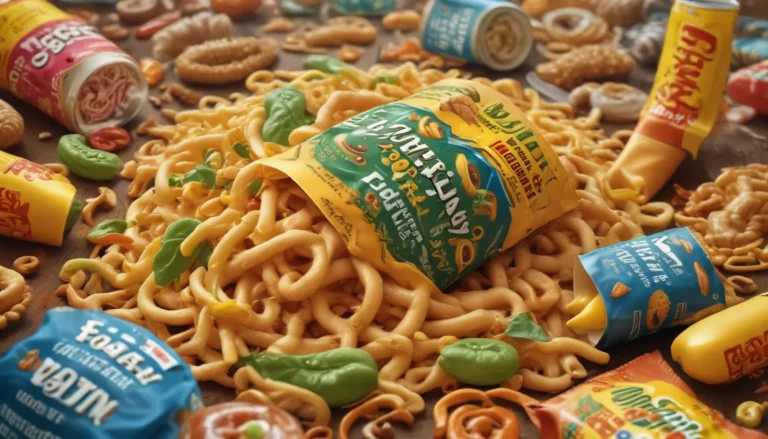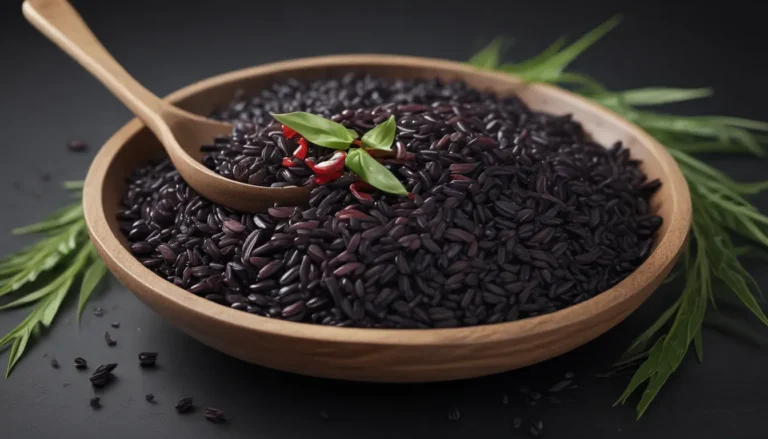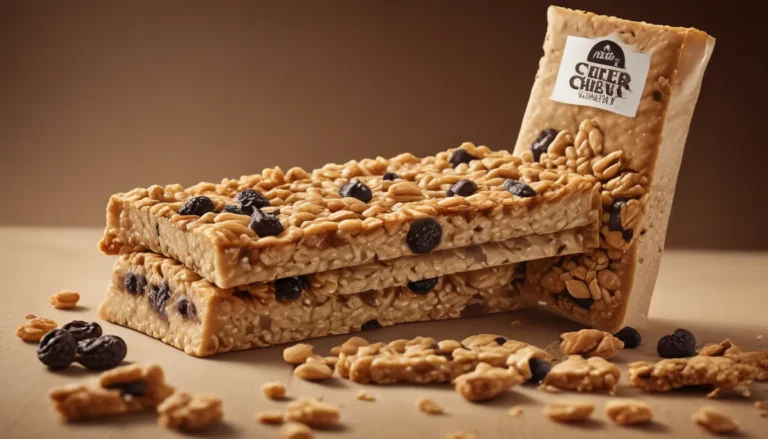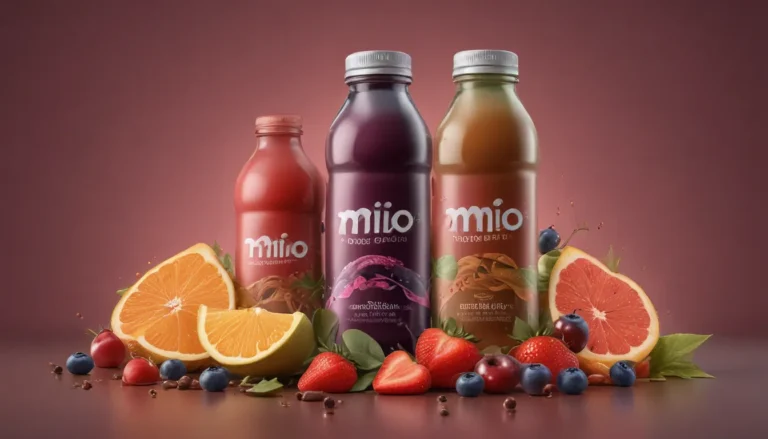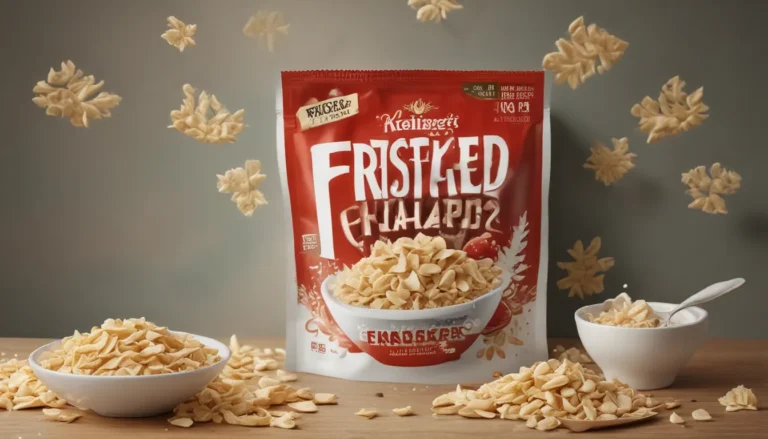The pictures in our articles might not always show exactly what the text is talking about. We use these images to make the article more interesting and eye-catching. They are there to add to the text, but not to replace it or show every detail.
Beans have been a beloved pantry staple for centuries, cherished for their rich history and diverse varieties. In this article, we will uncover 15 fascinating facts about beans, from their cultural significance to their nutritional benefits. Join us as we dive into the captivating world of beans!
Ancient Staple: A Culinary Tradition
Throughout history, beans have been cultivated for thousands of years, with ancient civilizations such as the Aztecs, Incas, and Egyptians recognizing the nutritional value of this humble legume. Their staple status in diets worldwide speaks to the enduring appeal of beans as a source of sustenance and nourishment.
Diverse Varieties: A World of Flavors
Beans come in an array of shapes, sizes, and colors, offering a delightful variety for culinary exploration. From the hearty kidney beans to the earthy lentils, each type brings its own unique flavor and texture to dishes, making beans a versatile ingredient for both traditional and modern cuisines.
Nutrient Powerhouses: Fuel for the Body
Beans are known as nutritional powerhouses, packed with protein, fiber, vitamins, and minerals essential for a balanced diet. Rich in folate, iron, potassium, and magnesium, beans offer a valuable source of nutrients that can support overall health and well-being.
Global Cuisine: A Culinary Journey
Beans hold a significant place in cuisines around the world, featuring prominently in traditional dishes that celebrate their unique flavors and textures. From Latin American feijoada to Middle Eastern ful medames, beans are a staple ingredient that bridges cultures and culinary traditions.
Sustainable Crop: A Green Choice
Beans are not only nutritious but also environmentally friendly, thanks to their ability to fix nitrogen in the soil and reduce the need for synthetic fertilizers. Their minimal water requirements make them a sustainable protein source, supporting efforts towards water conservation and eco-friendly agriculture.
Heart-Healthy Benefits: A Recipe for Wellness
Regular consumption of beans has been linked to a reduced risk of heart disease, thanks to their high fiber content that helps lower cholesterol levels and maintain healthy blood pressure. Including beans in your diet can be a delicious way to promote cardiovascular health and overall well-being.
Digestive Health: Nourishing the Gut
The high fiber content in beans supports healthy digestion and can help prevent constipation, promoting a happy and balanced gut. Additionally, beans contain resistant starch, a type of fiber that nourishes beneficial gut bacteria and contributes to optimal digestive function.
Budget-Friendly and Versatile: A Kitchen Essential
Beans offer an affordable and versatile source of nutrition, making them an excellent choice for those looking to stretch their food budget without sacrificing flavor or quality. Whether used in soups, stews, salads, spreads, or even desserts, beans add a nutritious and satisfying element to meals.
Protein Power: A Plant-Based Option
For vegetarians and vegans, beans are an excellent plant-based source of protein, offering a valuable alternative to animal products. By combining beans with grains like rice or corn, you can create a complete protein with all the essential amino acids, making beans a nutritious choice for meatless meals.
Weight Management: Feeling Full and Fueled
Thanks to their high fiber and protein content, beans can help promote satiety and keep you feeling fuller for longer. By including beans in your meals, you can support your weight management efforts by reducing overall calorie intake and staying satisfied throughout the day.
Cultural Significance: Traditions and Symbolism
In many cultures, beans hold symbolic meanings and are associated with luck, prosperity, and new beginnings. From New Year's traditions to ceremonial dishes, beans play a significant role in various cultural practices, highlighting their enduring significance and value in diverse societies.
Cooking Tips: Enhancing Flavor and Texture
To make the most of your beans, consider soaking them before cooking to reduce cooking time and improve digestibility. Whether you choose to soak them overnight or use the quick-soak method, taking the time to prepare your beans properly can enhance their flavor and texture in your favorite dishes.
Canned Beans Convenience: Quick and Easy Options
For a convenient kitchen staple, canned beans offer a time-saving option that is pre-cooked and ready to use. Look for low-sodium varieties and remember to rinse canned beans before using to reduce their sodium content, making them a healthy and convenient choice for busy cooks.
Bean Flour: A Gluten-Free Alternative
Beans can be ground into flour, offering a gluten-free alternative for baking and cooking that adds a unique flavor and texture to recipes. Bean flour is particularly useful in creating gluten-free baked goods and can provide a nutritious and flavorful option for those with dietary restrictions.
Long Shelf Life: A Pantry Essential
Dried beans have a long shelf life, making them a reliable pantry staple that can be stored for up to two years when properly stored. Whether you're stocking up for emergencies or looking for a versatile ingredient to have on hand, dried beans offer a nutritious and long-lasting option for your kitchen.
Embracing the World of Beans
From their historical significance to their culinary versatility, beans continue to captivate people worldwide with their rich flavors, nutritional benefits, and cultural importance. By exploring the fascinating world of beans and incorporating them into your meals, you can discover a world of culinary possibilities that enhance your well-being and nourish your body and soul.
Frequently Asked Questions (FAQs)
Are beans a good source of protein?
Yes, beans are an excellent plant-based source of protein, making them a valuable option for vegetarians and vegans who are looking to meet their protein needs without consuming animal products.
Do beans need to be soaked before cooking?
Soaking beans before cooking can help reduce cooking time and improve digestibility, ensuring that your beans are tender and flavorful when added to your favorite recipes.
Can I use canned beans instead of dried beans?
Yes, canned beans are a convenient alternative to dried beans, offering a quick and easy option for busy cooks who are looking for a ready-to-use ingredient that saves time in the kitchen without sacrificing flavor or nutrition.
Are beans suitable for gluten-free diets?
Yes, beans are naturally gluten-free and can be used as a gluten-free alternative in baking and cooking for those with gluten sensitivities or dietary restrictions. Bean flour, made from ground beans, offers a nutritious and flavorful option for gluten-free recipes.
How long do dried beans last?
Properly stored, dried beans can last for up to two years, making them a reliable pantry staple that you can keep on hand for emergencies or when fresh produce is scarce. By stocking up on dried beans, you can ensure that you always have a nutritious and versatile ingredient at your disposal.
In conclusion, beans are not just a humble legume but a versatile and nutritious ingredient that offers a myriad of benefits for both your health and your meals. By exploring the world of beans and incorporating them into your cooking, you can add depth, flavor, and nourishment to your dishes while embracing a culinary tradition that has stood the test of time. Whether you're looking to support your heart health, promote digestive wellness, or simply enjoy a delicious and satisfying meal, beans are a delightful addition to any kitchen and a valuable resource for your well-being. So why not embrace the world of beans and discover the endless possibilities that this humble legume has to offer? Explore, experiment, and enjoy the rich flavors and nutritional benefits of beans as you embark on a culinary journey that celebrates the wonders of this ancient and beloved ingredient.
